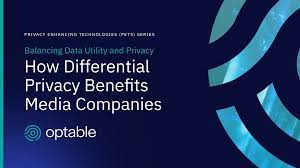Introduction
In the digital era, where data fuels innovation and drives decision-making, the concept of data privacy has gained paramount importance. This article explores the delicate balance between maximizing the utility of data and safeguarding confidentiality, addressing the challenges, regulations, and ethical considerations in the realm of data privacy.
Understanding the Significance of Data Privacy
Data privacy involves managing, protecting, and controlling access to sensitive information. As businesses and individuals increasingly rely on data-driven processes, ensuring privacy becomes crucial to building trust, maintaining security, and complying with legal requirements.
Balancing Utility: Harnessing the Power of Data
While protecting data privacy is essential, maximizing the utility of data is equally crucial. Organizations leverage data to enhance services, make informed decisions, and drive innovation. Striking the right balance involves utilizing data responsibly, respecting privacy, and extracting meaningful insights without compromising confidentiality.
Challenges in Achieving the Balance
Balancing utility and confidentiality is fraught with challenges. The growing volume of data, evolving technologies, and the constant threat of cyberattacks pose significant hurdles. Organizations must navigate these complexities to extract value from data while safeguarding against potential breaches.
Regulatory Landscape: Shaping Data Privacy Practices
Governments worldwide recognize the need to regulate data privacy. Initiatives like the General Data Protection Regulation (GDPR) and the California Consumer Privacy Act (CCPA) set standards for data protection, empowering individuals with control over their personal information. Compliance with these regulations becomes imperative for businesses aiming to balance utility and confidentiality.
Ethical Considerations in Data Handling
Ethics play a pivotal role in the responsible use of data. Organizations must consider the moral implications of data collection, storage, and utilization. Respecting user consent, being transparent about data practices, and prioritizing privacy in algorithmic decision-making contribute to ethical data handling.
Implementing Robust Security Measures
Ensuring data privacy requires robust security measures. Encryption, secure storage protocols, and regular cybersecurity audits are essential components of a comprehensive data protection strategy. Investing in cutting-edge security technologies safeguards against unauthorized access and data breaches.
User Education and Empowerment
Educating users about data privacy empowers them to make informed choices. Clear communication about how data is collected, used, and shared builds trust. Providing users with control over their preferences and offering transparent opt-in mechanisms contribute to a user-centric approach to data privacy.
The Role of Data Protection Officers
Appointing Data Protection Officers (DPOs) is a proactive step in managing data privacy. DPOs ensure compliance with regulations, oversee data protection strategies, and act as liaisons between organizations and regulatory bodies. Their role is integral in achieving the delicate balance between utility and confidentiality.
Technological Innovations for Privacy Enhancement
Advancements in technology offer innovative solutions for enhancing data privacy. Privacy-preserving techniques like homomorphic encryption and federated learning enable data analysis without compromising individual privacy. Embracing these technologies contributes to the evolution of privacy-centric data practices.
Continuous Monitoring and Adaptation
The dynamic nature of data landscapes requires continuous monitoring and adaptation. Organizations must stay vigilant against emerging threats, update privacy policies in response to regulatory changes, and evolve security measures to address evolving cyber threats.
Conclusion
Balancing utility and confidentiality in data handling is an ongoing challenge that demands a privacy-first mindset. Organizations that prioritize ethical considerations, comply with regulations, and invest in robust security measures foster an environment where data can be harnessed for utility while respecting individual privacy. Nurturing this delicate balance is not just a legal requirement but a testament to an organization’s commitment to responsible and sustainable data practices.
